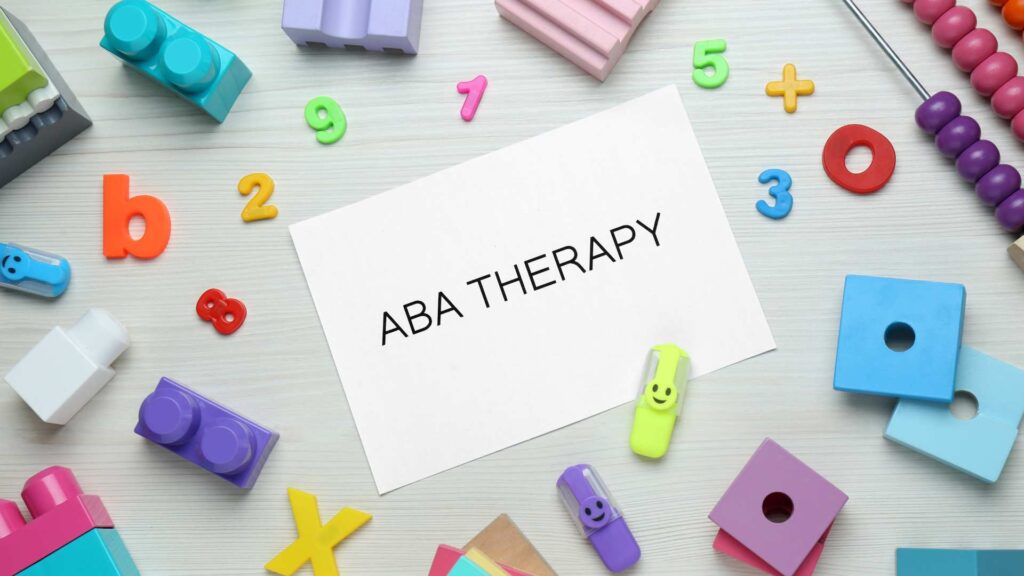Table of Contents
What do I need to know about ABA?
After receiving an autism diagnosis, the first thing a healthcare professional would do is to advise parents on the several approaches and treatments for autism. Among these approaches, applied behavior analysis (ABA) stands out as a widely recommended and effective treatment for autism spectrum disorder (ASD). However, the mention of behavior therapy can spark a multitude of uncertainties and ABA questions.
You might wonder, “What do I need to know about ABA?” Fortunately, on this blog by ABA Centers of Washington, we have compiled a list of frequently asked questions regarding ABA therapy so that you can familiarize yourself with the essential aspects of the most commonly employed therapy for autism recognized by the American Psychological Association.
Top 10 ABA Questions
1. What is ABA Therapy?
Let’s start with the most popular ABA question. ABA therapy is a scientific approach to understanding and changing behavior. It focuses on applying techniques derived from the principles of learning to improve socially significant behaviors. ABA therapy involves breaking down complex skills into smaller, manageable tasks and then teaching those skills systematically, often through repetition and reinforcement.
2. How Does ABA Therapy Help My Kid with ASD?
ABA therapy is highly individualized, targeting specific behaviors and skills tailored to the unique needs of each child with ASD. It addresses a wide range of areas, including communication, social skills, academic abilities, self-care, and daily living skills. By teaching new skills and reducing challenging behaviors, ABA therapy empowers children with ASD to reach their full potential and lead more independent and fulfilling lives.
3. Is ABA a Cure for Autism?
While studies and research, like Perspectives on Behavior Science ABA, recognized ABA therapy as an effective treatment for autism, it is essential to clarify that there is currently no known cure for autism. Instead, ABA focuses on maximizing the child’s developmental potential and improving their quality of life by teaching adaptive skills and reducing problematic behaviors.
4. Who Provides the ABA Program?
ABA therapy involves a team of highly trained professionals, including Board Certified Behavior Analysts (BCBAs) and Registered Behavior Technicians (RBTs).
BCBAs are central to ABA therapy. They lead the design and oversight of programs, conduct assessments, and use data analysis to make informed decisions. RBTs, under the supervision of BCBAs, are responsible for implementing the intervention plan.
5. Which Skills Can ABA Therapy Improve?
ABA therapy targets a wide range of skills, including, but not limited to, communication, social interaction, play skills, self-help skills, academic skills, and behavior management. The specific goals of ABA therapy are determined based on each child’s individual needs and strengths, as identified through comprehensive assessments and ongoing observation.
6. How Is Progress Measured During ABA Sessions?
BCBA and ABA therapists evaluated progress through direct observation, standardized assessments, and analysis of data collected during therapy sessions. This data-driven approach allows for continuous monitoring of progress and adjustments to the treatment plan as needed.
7. Can ABA Replace School?
While ABA therapy can enhance academic performance, it doesn’t aim to replace traditional schooling; rather, it complements it. Many children with ASD benefit from ABA therapy alongside their educational program. Therapists can integrate ABA techniques into the classroom to bolster learning and behavior management. However, the precise role of ABA therapy concerning schooling hinges on the child’s unique needs and objectives.
8. Is ABA Therapy Covered by Insurance?
Under Washington’s autism insurance bill, SB 5059, health plans must include coverage for both diagnosis and treatment of ASD, including applied behavioral analysis. In addition, there are no limits on the number of visits to autism service providers or age.
9. How Long Does ABA Therapy Last?
This ABA question is common in our centers, and it is hard to give an accurate answer because the duration of ABA therapy varies depending on many factors, like the child’s needs, goals, and progress. Some children may benefit from short-term, intensive interventions focused on addressing specific skills or behaviors, while others may require ongoing, long-term support.
Moreover, the duration of the programs relies on the client’s adherence to the entire program schedule or the consecutive cancellations. Typically, therapy sessions span 20 to 40 hours weekly, underscoring the importance of compliance with ABA sessions to prevent impeding progress.
10. Is There a Waiting List for Access to ABA Therapy?
Many cities have long waiting lists for ABA therapy due to the high demand and limited availability of qualified providers. However, our center in Washington can assist families in Seattle, Vancouver, Tacoma, and other areas in a timely manner. We have been able to maintain a more efficient scheduling system.
ABA Centers of Washington offers ABA therapy services tailored to individual needs and delivered at centers, schools, homes, and community settings. This flexible approach enhances accessibility for parents and caregivers.
ABA Centers of Washington and Autism Care

Having answers to these ABA questions will enable you to start the therapy process faster, ultimately benefiting your loved one through early intervention to maximize the benefits of ABA therapy.
At ABA Centers of Washington, we guide you from your child’s diagnosis early intervention to the customization of ABA therapies. Remember that with the appropriate professional support, your child can learn skills that will facilitate their future development.
If you still have more ABA questions, call us at (877) 554-0710 or share your contact information so we can help you make informed decisions.








